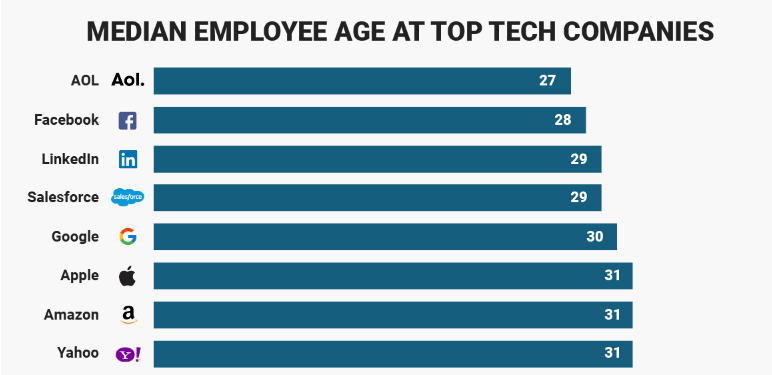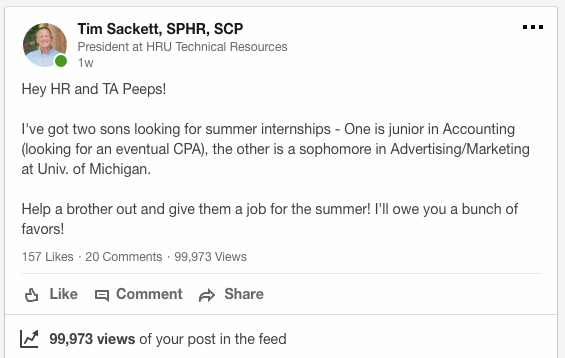RPO provider WilsonHCG released their annual Employment Brands Report for 2018. The report lists the top 100 employment brands based on an algorithm Wilson put together, and they are:
#1 – Johnson & Johnson
#2 – Intel
#3 – IBM
#4 – Lockheed Martin
#5 – Proctor & Gamble
#6 – General Motors
#7 – J.P. Morgan Chase
#8 – Dow Chemical
#9 – Cummins
#10 – ADP
So, how does that Top 10 feel at first glance?
I had some problems. The top 10 list seems a bit dated. Like it might be better titled, “Employment Brands People Over 40 Would Love to Work for!”. If someone on the street came up and said, “Tim, you can win a million dollars by telling us the 3 top Employment Brands in the U.S.” I would immediately say – Google, Apple, Facebook.
Google is on the list and in the top 20. Facebook is down at 61. Apple is NOT on the list! Also, no Nike. Very strange.
So, I looked at the criteria. How did this big RPO firm that sells to the Fortune 500 come up with this list? Here are the criteria for having a ‘top’ employment brand:
- Career Page – Okay, that’s important to a great employment brand, solid start!
- Job Boards – Um, what!? Your use of Job Boards has nothing to do with your Employment Brand! In fact, I would argue organizations with great employment brands don’t even have to use job boards.
- Employee Reviews & Candidate Engagement – Okay, we get it Glassdoor has data.
- Accolades – By whom? Me? You? This is also gamed as it’s “Best Places to Work”, “Most Admired”, etc. Which are all pretty much pay to play schemes.
- Recruitment Marketing – RM is not EB. You can be great at RM – Amazon, and still have a weaker EB.
- Corporate Social Responsibility & Recruitment Initiatives – Recruitment Initiatives? Could one of those happen to be – “Use RPO”? Just asking for a friend.
Okay, I’ve had enough fun with Wilson and the report, there was some actual good data that came out of it as well.
The biggest one that really hits home is this: The top 100 on the list scored 805% better than the bottom 100 on the list! That’s a giant disparity and really talks to the fact that EB (or more RM in this case) still has so far to come, but many top brands are beginning to separate from the pack.
Wilson found that top scoring companies had better alignment with marketing, which completely makes sense and it should be that way. Employment branding and recruitment marketing done in a silo, is a whole lot of wasted effort and resources. Your candidates are often your consumers, and while marketing messages can be vastly different from recruiting messages, the tone and voice should be similar.
Go check out the report, you can download a copy here! Under each of the six measures, the report does a great job of giving specific things organizations can do to better themselves.




